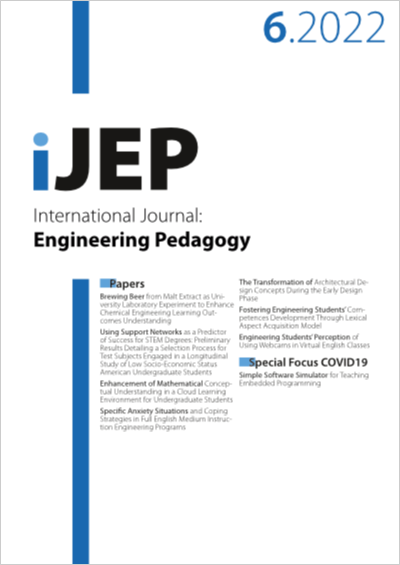The Transformation of Architectural Design Concepts During the Early Design Phase
DOI:
https://doi.org/10.3991/ijep.v12i6.31717Keywords:
Architecture design, Concept generation, Design methods, Concept transformationAbstract
The most difficult objective for students in an architectural design studio during the early design phase is to produce a design concept satisfyingly. This is due not just to the difficulty of selecting an appropriate method of approaching concepts, but also because of the many transformations associated with the concept's evolution over time.
This research examines the modifications that occur throughout the conceptual phase of a design session, which typically lasts a few weeks. We hypothesize that while students' conception methods have been more abstract in creating a concept, they are subject to more alterations during the early phase of design. The research conducts concept generation and transformations by monitoring a group of fourth-grade architecture students through their design process. It also tries to link those transformations to the various methods utilized by students to create their concepts. It appears that the transformations that occurred throughout the design sessions were either formal or functional-oriented. Observations clarify that those transformations are linked to the sort of concept generating, which is either abstract or concrete. By observing the design sessions, the research was able to confirm the previous hypothesis. The modifications implemented to the design concepts were obviously tied to the nature of their selection of methods of production. When compared to concrete nature concepts, abstract nature concepts were more vulnerable to transformations throughout the conceptual phase of the design task on the scope of form and function.
Downloads
Published
How to Cite
Issue
Section
License
Copyright (c) 2022 Nahedh Taha Al-Qemaqchi

This work is licensed under a Creative Commons Attribution 4.0 International License.


